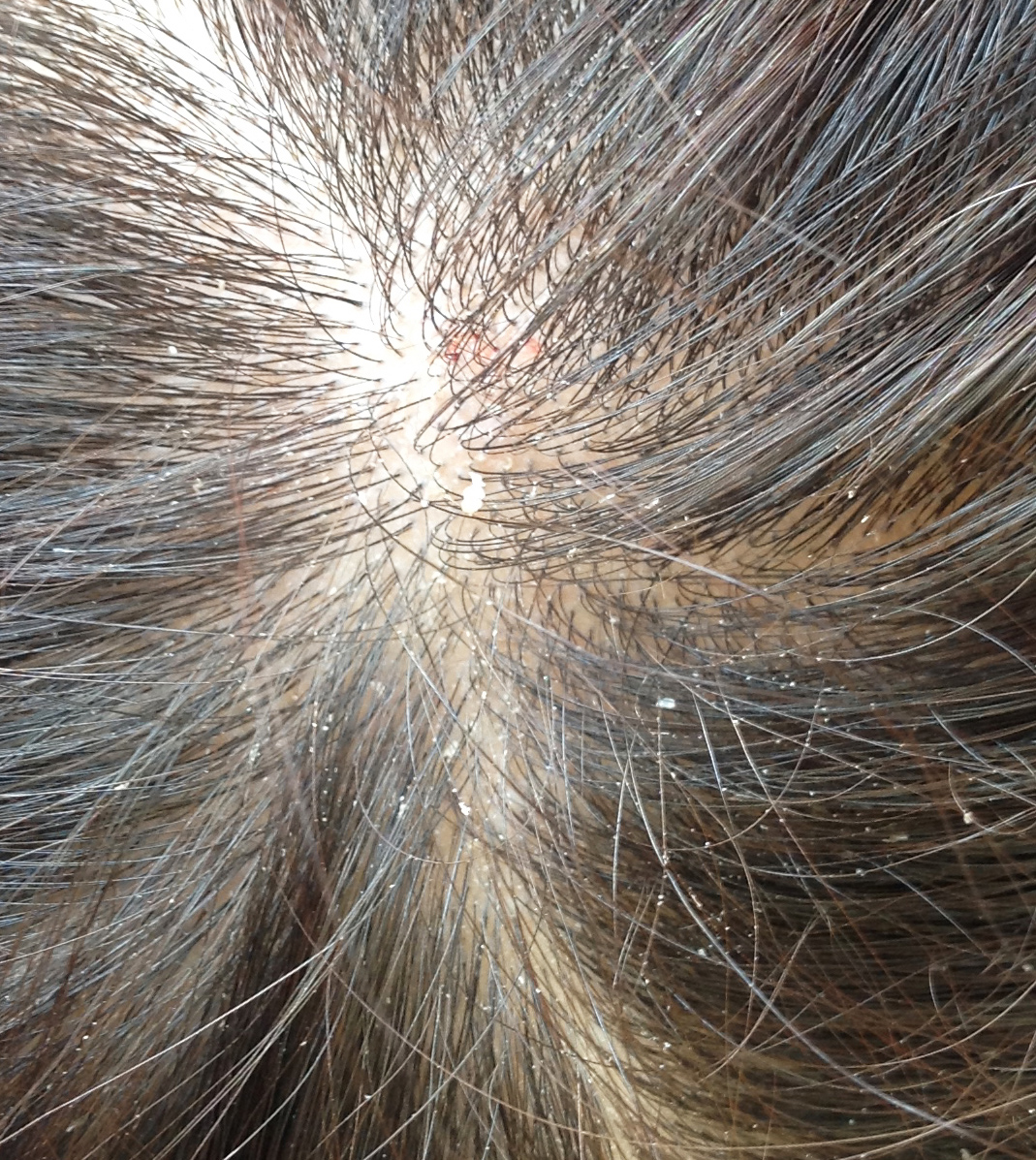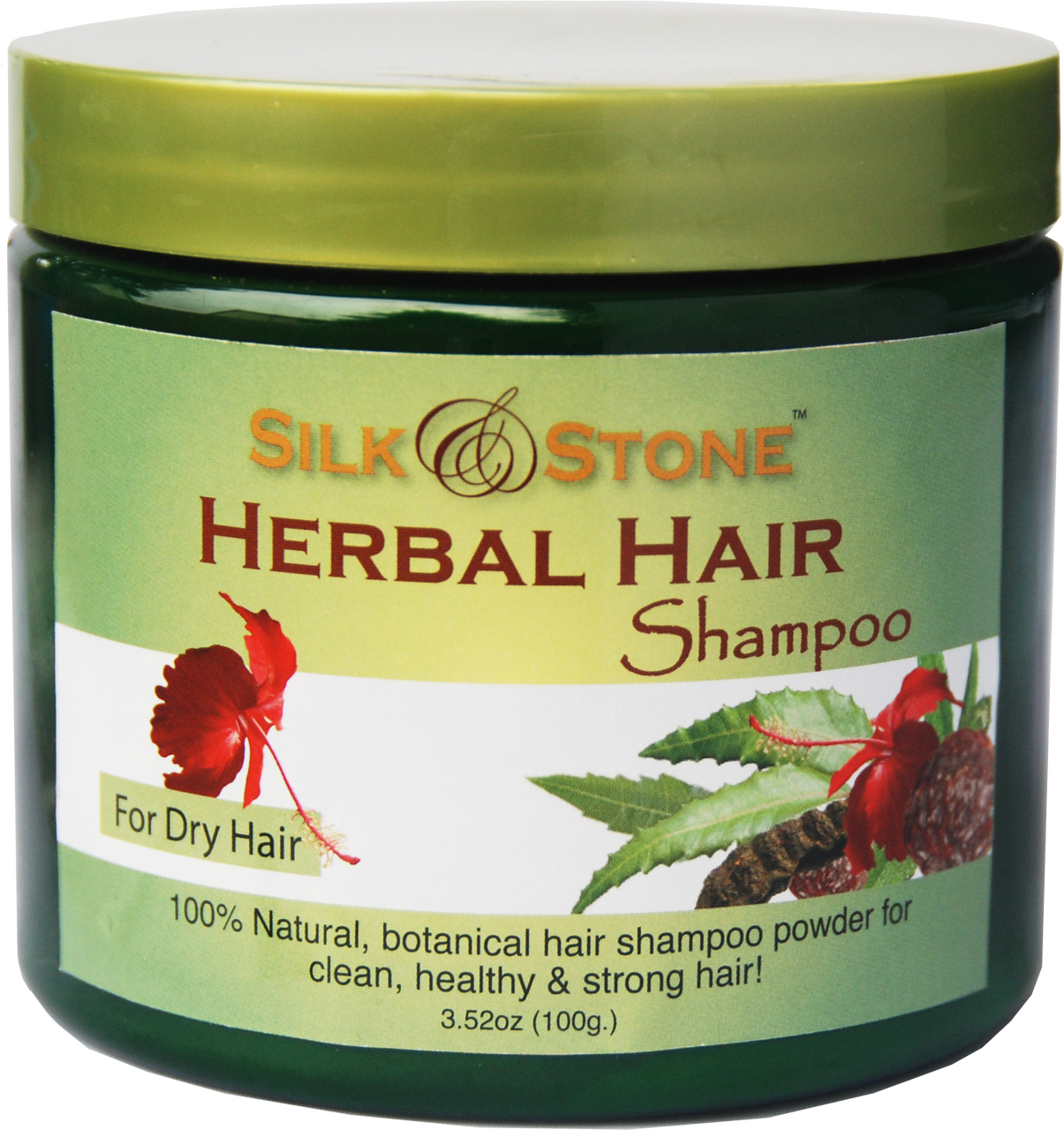Dandruff Control

By Zahid Hussain & Kaniz Shah
What is dandruff and how does it occur?
Dandruff is a condition of the scalp that causes white flakes, itchiness and redness. It may also cause itchiness in the ears and hair fall.
Dandruff occurs when your scalp sheds dead skin cells. Malassezia, a fungus or yeast, is naturally found on the skin and scalp. Normally, this fungus has limited growth but excessive oil on the scalp serves as food for this fungus, thus helping it grow immensely. This fungus produces oleic acid as a metabolic by-product. This oleic acid in turn produces an increased turnover of skin cells, causing unwanted white flakes or dead skin. This dead skin falls off and mixes with oil from the hair and scalp, turning into dandruff. This does not mean that those with an oily scalp usually have dandruff, but if the excess oils are not washed regularly or properly, it can lead to dandruff.
Most shampoos dry out the scalp but they don’t get rid of dandruff.
Other Causes of Dandruff:
- The weather- Although weather is usually not the cause of dandruff, dandruff can worsen during dry, cold-weather months. It's believed that the reduction of humidity in the air during winter can add to the buildup of dry skin that occurs with dandruff.
- Dry skin - people with dry skin tend to get dandruff more often. Winter cold air, combined with overheated rooms is a common cause of itchy, flaking skin. The flakes are usually small and not oily.
- Seborrheic dermatitis (itchy, scaly skin caused by an overproduction of oils in the skin and irritated malassezia.) - People with seborrheic dermatitis are very prone to dandruff often in the scalp, backs of the ears, the breastbone, eyebrows and the sides of the nose. The patient will have red, greasy skin covered with flaky white or yellow scales.
- Not enough shampooing or too much shampooing- Some experts believe that if you don't shampoo enough there can be a buildup of oil and dead skin cells, causing dandruff. And if you shampoo too often, the skin may get irritated. It may also produce more oils since your scalp gets over-dried from excess washing, making your scalp feel greasy by the next day.
- Certain skin conditions – conditions such as psoriasis, eczema, etc. can also trigger dandruff for some people.
- Some illnesses - Adults with Parkinson's disease and some other neurological illnesses are more prone to having dandruff and seborrheic dermatitis. Patients recovering from heart attack, stroke or a weak immune system may also have dandruff more often than others.
- Reaction to hair/skin care products - Some people react to some hair care products with a red, itchy, scaling scalp. Many experts say that shampooing too often may cause dandruff as it can irritate the scalp.
- Diet - Some experts say that people who do not consume enough foods that contain zinc, B vitamins, and some types of fats are more prone to dandruff.
- Stress- Experts believe there is a link between stress and many skin problems.
Your skin’s pH
Another factor to consider is the pH of the skin and products used on our skin and hair. The pH from 0 to 7 is acidic and from 7 to 14 is alkaline. The normal pH of our skin is slightly acid. It is usually 4.5 to 5.5. Being acidic, it is naturally able to kill bad bacteria or prevent the multiplication of it since the bacteria cannot thrive in an acidic environment. If we put something on our scalp that is alkaline (with a higher pH) we alter the skins pH and then the skin is not able to fight the bacteria it needs to fight. This causes more diseases. Most soaps and shampoos are alkaline so our skin and hair doesn’t like them and are usually damaged by such products. The side effects may not always show up right away but with the continued use of these products, they show up one time or another. Alkaline pH also opens the cuticle of the hair, letting foreign objects enter the cuticle, which also damages the hair.
Conditioner, however, is more acidic and tends to work better for most people. An acidic pH closes the cuticle of the hair, which protects the hair from foreign objects. This is why most conditioners tend to make your hair look shinier and healthier.
Every liquid substance on the earth has a pH, or an acid-base, measurement. Very few substances are neutral; most are either acidic, such as vinegar, or basic, such as bleach. Yogurt, for example, has a pH of 4 that is acid and vinegar has a pH of 2.5 to 3, which is also acidic. But since the skin’s pH is around 5, vinegar would be far too acidic to use on the skin.
Using pH balanced products and restoring the pH of the scalp may help prevent scalp conditions like hair loss, dandruff, bacteria or fungus.
Restoring pH of Your Scalp:
Method 1
Mix equal parts of apple cider vinegar and distilled water and pour into a spray bottle (optional). Spritz the mixture onto your hair and scalp (avoiding eye area) to restore pH quickly. Wrap your hair for 15 minutes to 1 hour. Do a final rinse with clean water. This is especially great after a sweaty workout where excess oils are apparent on your skin. Repeat 1-2 times a week for best results.
You may also massage your hair with this mixture before wrapping in a towel.
Method 2
Restore your pH by drinking plenty of fluids throughout the day, preferably alkaline water, which is a special type of water that has an elevated pH. The sweat and oil on your scalp adds to its overall pH, which may modify the health of your skin.
Method 3
Alkaline Acid Balance: Some experts recommend using apple cider vinegar to restore alkaline acid balance. The theory behind the alkaline diet is that our blood is slightly alkaline (with a normal pH level of between 7.35 and 7.45) and that our diet should reflect this pH level. Proponents of the alkaline-acid theory believe that a diet high in acid-producing foods leads to lack of energy, excessive mucous production, infections, anxiety, irritability, headache, sore throat, nasal and sinus congestion, allergic reactions, and increased risk of conditions such as arthritis and gout.
Despite being an acidic solution, some proponents of apple cider vinegar believe it has an alkalinizing effect on the body. As such, they recommend one to two teaspoons of apple cider vinegar in water as a daily health tonic.
CAUTION: People with allergies to apples should avoid apple cider vinegar. Vinegar applied to the skin may cause burns and scarring.
Signs and symptoms of dandruff
The scalp may be itchy, dry, irritated and/or red with visible white (sometimes yellowish) skin flakes. If you see white flakes on your shoulders, it is very likely a sign of dandruff.
Effects of dandruff on head and body
Dandruff can be a reason of infection on your scalp for example psoriasis (a skin disease marked by red, itchy, scaly patches). Similarly, eczema also causes the skin to become itchy and flaky.
Due to flakes on the scalp, the scalp cannot breathe properly and the hair roots become weak. This may cause hair fall, graying, acne, pimples, headaches, weakness of eyesight and even hair loss.
Dandruff can also be very embarrassing. Imagine going to an interview or an important meeting with white flake around your shoulders. Or worse, a date with a special someone who, as soon as you are about to get a hug, they notice the flakes falling down your sleeves! How uncomfortable!
How to prevent dandruff
Brushing your hair regularly helps distribute the oils throughout your scalp and hair that are naturally produced by your skin. It also massages your skin, which increases blood flow to the area and improves circulation. Brushing your hair upside down works best and helps distribute the oils better.
Other things that may help reduce dandruff include:
- Avoid stress and stressful situations. When we are in stress it can feel as if our body is in meltdown – our heart is permanently racing, it’s difficult to sleep, our head often gets itchy and dandruff develops as you itch.
- A balanced diet that includes both acidic and alkaline foods can help elevate a weakened immune system and prevent a build up of unhealthy acid in the body.Eat a balanced diet with healthy foods that are better for healthy skin and scalp and include zinc and B vitamins in your diet.
- Get in the habit of washing your hair no more than 1-2 times a week. If your hair gets very greasy after 1-3 days, you might want to take a leap and try this wonderful technique: Stop washing your hair for 2 weeks straight. Your hair will feel very greasy, but it gives your skin enough time to adapt and learn to take the matter into it’s own hands and produce oils gradually. After the 2 weeks, begin washing your hair 1-2 times a week. You might be surprised! You may not “need” to wash as often as you normally did.
Our Go To Best Shampoo To Restore Proper pH and Eliminate Flaking. Our herbal shampoo rejuvenates dry, dull and brittle hair and leaves your hair and scalp feeling clean and healthy!

Herbal Shampoo Powder for Normal to Dry Hair
See All Of Our Formulas For Dandruff Control>

